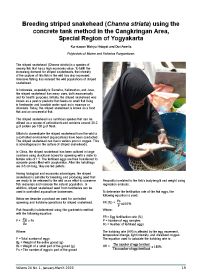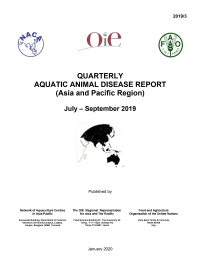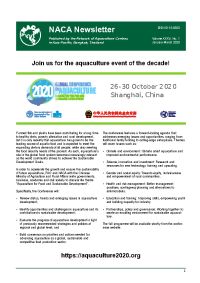The striped snakehead (Channa striata) is a species of swamp fish that has a high economic value. Intensive fishing has reduced the wild populations. Hatchery production of this species has the potential for both commercial aquaculture supportive breeding programmes to conserve fish resources and increase the natural population. Below we describe a protocol we used for controlled spawning and hatchery operations for striped snakehead.
The 83rd edition of the Quarterly Aquatic Animal Disease report contains information from twelve governments. The foreword discusses the upcoming 11th Symposium on Diseases in Asian Aquaculture (DAA 11), which will be held from 29 September to 2 October 2020, at the Borneo Convention Center, Kuching, Sarawak, Malaysia.
In this issue:
Join us for the aquaculture event of the decade! 18th Meeting of the Asia Regional Advisory Group on Aquatic Animal Health; New Director General of the Department of Fisheries, Thailand; Thailand holds National Sea Bass Fair; Tuskfish CMS 2.0 is available; Regional consultations on strengthening aquaculture governance and demographic changes in fishing communities; INFOFISH World Shrimp Conference and Exposition.
The 35th Session of Asia-Pacific Fishery Commission has identified the lack of effective governance as a major threat to sustainable aquaculture growth for greater contribution to achievement of the Sustainable Development Goals. The objectives of the consultation were to: Share the results of country studies on aquaculture governance in respective countries; identify gaps, issues and challenges in aquaculture governance; and recommend strategies and actions to improve and strengthen aquaculture governance.
Audio recording of presentation delivered at the Consultation on Strengthening Governance of Aquaculture for Sustainable Development in Asia-Pacific, 5-6 November 2019, Bangkok, Thailand.



